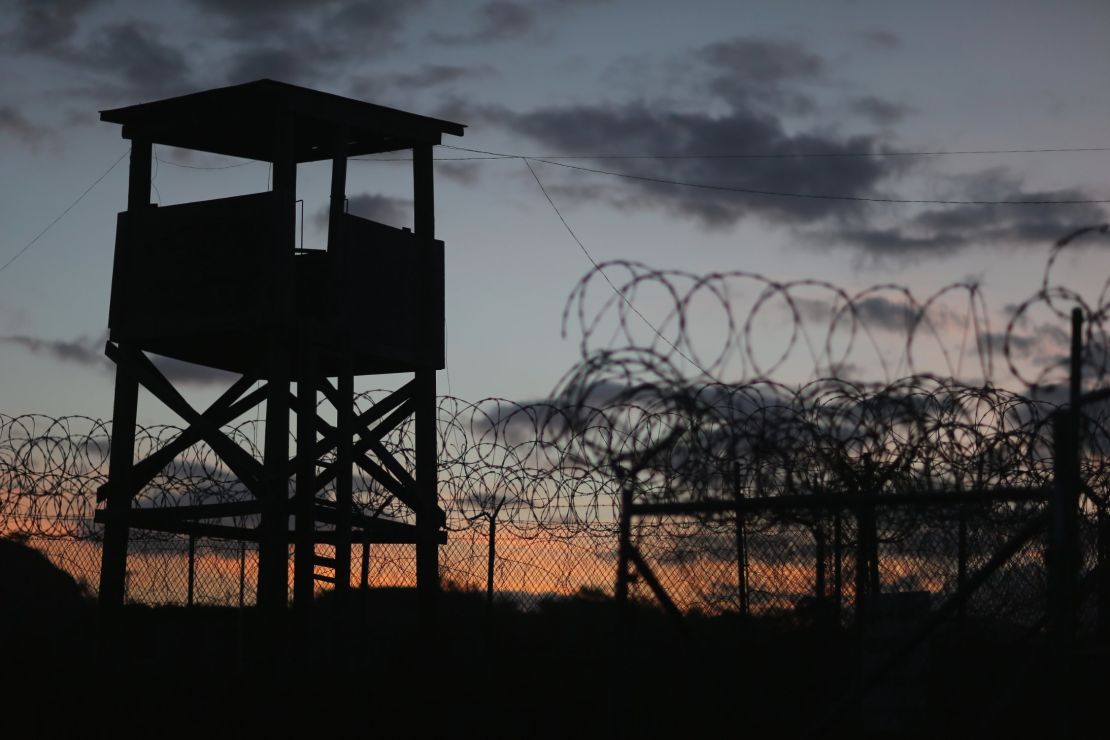Story highlights
Al-Harith reportedly carried out a car bombing in Iraq Monday
Blair said he was paid compensation by a subsequent UK government
Former British Prime Minister Tony Blair has defended his attempts to secure the release of a UK citizen from Guantanamo Bay after reports that the former detainee carried out an ISIS suicide attack in Iraq this week.
ISIS on its media affiliates claimed that Abu-Zakariya al-Britani – a British citizen who initially went by Ronald Fiddler and later took the name Jamal Udeen al-Harith – detonated a car bomb at an Iraqi army base southwest of Mosul this week.
While a spokesman for Prime Minister Theresa May said there had been no independent verification that the attacker was the former Guantanamo detainee, an official told CNN that UK intelligence services believe with “high confidence” that the bomber killed near Mosul was the former British inmate.
CNN affiliate Channel 4 has verified the identity of the man through a family member as al-Harith, a 50-year-old from Manchester.
Blair confirmed Wednesday that al-Harith was paid compensation by a subsequent UK government in 2010 for his time in the US detention facility, but did not confirm how much he was given.
“The fact is that this was always a very difficult situation where any government would have to balance proper concern for civil liberties with desire to protect our security, and we were likely to be attacked whatever course we took,” Blair said in the statement.

Al-Harith spent more than two years imprisoned in Guantanamo Bay before being released in 2004 after pressure from the UK government led by Blair.
“The reason it did take a long time for their release was precisely the anxiety over their true affiliations.”
Former Foreign Secretary Jack Straw also defended the government decision, telling Sky News that the government at the time was being attacked from both the right and left “suggesting we were being harsh and reasonable” for not pressing the US on UK citizens in Guantanamo.
Former detainee denied violence
Al-Harith gave a harrowing account of life at the prison to a European Coucil parliamentary hearing in 2004, saying he had been regularly tortured, being forced to sit in stress positions, deprived of food and water, and given injections of unknown substances.
In the same hearing, he said he had never “never engaged in any kind of fighting or planning or participating in any kind of violence or terrorist behavior.”
According to US government figures, 122 of the 693 people released from Guantanamo Bay by mid-July 2016 went on to commit terrorist or insurgent activities. A further 86 are suspected of such activity, according to the figures, compiled by the US Office of the Director of National Intelligence,.
President Obama campaigned fervently to close down Guantanamo Bay before his election in 2009 but, faced by opposition in Congress, failed to do so over his eight-year leadership, though he reduced the number of detainees to 55 by the end of his second term in office.
President Trump has vowed to keep it open, and is being pressured by Republican Party senators to expand it.
CNN’s Ryan Browne, Lindsay Isaac, Stephanie Halasz and Eliza Mackintosh contributed to this report.






